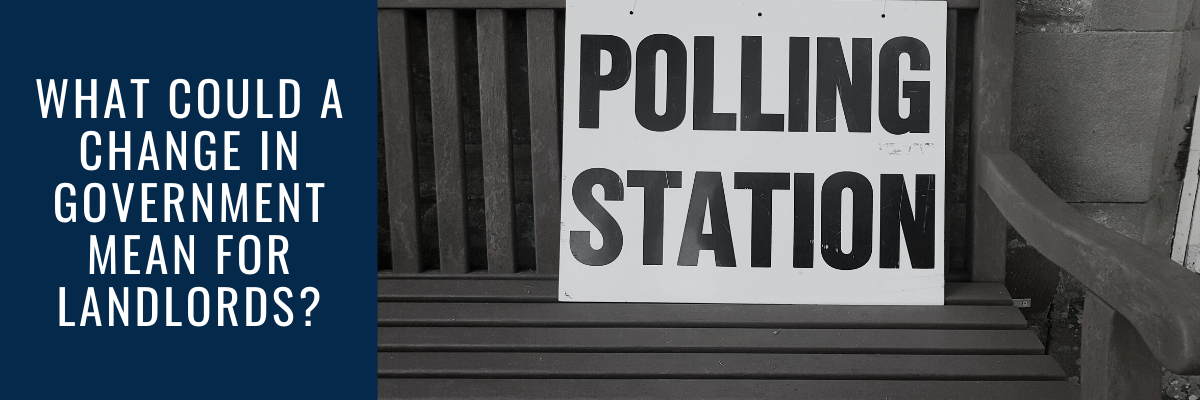On 12 December, the public will head for polling stations across the country in a snap general election aimed at breaking the Brexit deadlock. But while resolving the Brexit issue may be the focus of most headlines, we ask what might a change in government mean for landlords? Landlords have had to tackle through several new buy-to-let regulations put in place by the current government. And a potential party change could have an even bigger impact on the buy to let market.
Beyond recent Conservative moves to better protect tenants, Labour has made a wealth of headlines with bold proposals for the buy to let sector. The Liberal Democrats also made a lot of noise about the private rented sector in their 2017 manifesto.
With the manifesto's yet to be released, we’ve picked out the key moves and proposals made by all three main parties in the press in recent times, as well as their previous manifestos.
Labour government
From recent headlines, it looks as though a Labour government under Jeremy Corbyn is keen to make some major changes to the buy to let sector.
Right to buy
Shadow Chancellor John McDonnell had discussed a ‘right to buy’ scheme that would allow private tenants to buy the homes they are living in under a Corbyn-led Labour government – potentially at a price below market value. The plan could appeal to a lot of young people and would, in theory, help first-time buyers make their first steps onto the property ladder without being uprooted from their homes. Shortly afterwards Labour confirmed it was aimed at landlords with larger portfolios.
However, even this revised policy would instantly destabilise the whole housing market. Equally, it is unclear how the government could guarantee that any tenant would be able to gain a mortgage on a property whose value has been decided arbitrarily. What would the real value of any property be if the government can intervene and price it on a whim?
Rent control
Labour also has aspirations to reintroduce rent controls into the private rented sector. It’s an idea that has been introduced elsewhere in Europe – notably Germany and Ireland. But we have our concerns on there are many variables to look into as if you try and cap rent then someone or a specific organisation is going to have to set that rent level. Another thing to think about is that the rent level will be different for one property in one area compared to a similar property in another.
You can’t just say that a two-bedroom property should be rented for £2,000 a month regardless as to whether the property is located in Kensington or Enfield. It sounds great in principle but the permutations would possibly be endless. It would take years to implement and even longer to clear up when it goes wrong.
Universal credit
Labour has also pledged to scrap Universal Credit as we currently know it. While the basic structure might remain – though this is still unclear – Jeremy Corbyn’s party has proposed a £3 billion package of emergency reforms.
The Labour Party would look to reduce the current five-week wait for the first payment to scrap it and also phase out the two-child benefit limit. Details are currently sparse.
For landlords, the main issue with the current system is the ban on direct payments to landlords other than when the tenant is in arrears.
The current Government is looking at reintroducing direct payments and trialling a new online payment system to speed up much-needed payments.
Conservative government
Whilst the Tories have traditionally been the party most ‘on-side’ for buy to let landlords, the current government has lost a lot of their trust. One poll conducted by the National Landlords Association earlier this year found that only 25% of landlords would vote for the Conservative party today in a general election after 69% voted for them in 2017.
This is likely due to the onslaught of legislative and tax changes recently introduced – an attempt, to appeal to renters and the younger voters. The sheer number of moves by the government to ‘modernise’ the buy to let market has made many landlords uneasy.
Tax changes
One such move is the phasing out of mortgage interest tax relief on their rented properties, meaning landlords can no longer offset their mortgage payments against their rental income, causing some to experience much higher tax bills than they originally anticipated.
But, the impact will ultimately and has already been felt by the tenant in increased rents, especially where landlords are highly geared with mortgage debt. We have had a few landlords who have cited this as the main reason for increasing the rent.
Regulation changes
A wide range of legislation changes came into force this year. Some sought to make renting more affordable by capping deposits at a maximum of five weeks rent, and banning landlords and letting agencies from charging letting fees.
While legislation that better protects the rights and safety of tenants is no bad thing – and some of these new rules were introduced for the direct benefit of landlords – the sheer number of changes left some in the sector struggling to keep up.
It has been pointed out that since the last big housing act in 2004 the number of regulations affecting the private rented sector has increased by over 30%, to 156 separate laws. That is not taking into consideration devolution, where we now have different rules in England, Scotland, Wales and Northern Ireland.
On the positive side, a good deal of the legislation has been initiated and influenced by the industry and there are still calls from the trade bodies for better regulation of the sector, particularly in England. The fear is however that this flood of laws creates a lot of red tape, meanwhile, existing laws are not being enforced properly.
A 2019 government survey into private letting found that many landlords are not compliant with basic new legislation – with 38% those taking part not checking a tenant’s right to rent, and 30% failing to provide carbon monoxide alarms. No matter the number of changes, though, it’s a landlord’s responsibility to stay one step ahead of the law. Which makes investing in a letting agent even more important to keep landlords compliant with all legislation.
Section 21
The Conservative government has also proposed the removal of Section 21– meaning that landlords will no longer be able to evict tenants using the Section 21 notice procedure and will only be able to end tenancies where they have a legitimate reason to do so.
This would mean relying on Section 8 to bring a tenancy to an end using a concrete, evidenced reason already specified by law. If this change does come into force, however, Section 8 will allow landlords to regain their home to sell or to live in themselves.
Liberal Democrat government
Many of the policies outlined in the 2017 Lib Dem manifesto regarding the private rented sector might appear on the surface to crib certain elements of both the Labour and Conservative pledges.
Rent to buy
Under the proposed ‘rent to buy’ policy, young professionals and working families unable to afford a home would be able to buy their first home for the same cost as renting, with each monthly payment steadily buying a share in the home. The big difference being that these homes would be new stock using money previously allocated to the ‘build to own’ policy.
The properties would only be available to those able to meet the criteria of a conventional mortgage and with the ability to afford to pay market rent, without the help of housing benefit. The party said it was not intended as a replacement for affordable rented properties or social housing, and tenants would have the right to sell their property at any time, cashing out their share of the home.
This older manifesto refuses to reverse section 24 changes and also outlines plans to introduce a ‘rent to own’ model, which would put rent payments towards an increasing stake in a property – so tenants would own it outright after 30 years. It also mentions giving tenants first refusal on buying a home they have been renting and establishing a ‘help to rent’ scheme to provide deposit loans for the under 30s.
Longer tenancies
As you would expect, given the reputation the party still holds among some as the ‘party of youth’, many of their policies are engineered to protect tenants – for example, promoting longer tenancies of three years or more with an inflation-linked annual rent increase built-in. This would supposedly give tenants extra security and limit rent hikes.
Conclusion
Ultimately, landlords should prepare for several changes – with the removal of Section 21 already under consultation and several parties calling for legislation around longer tenancies, for example.
Whatever the outcome of the election on 12 December, landlords should ensure they are 100 per cent up to date with existing legislation and tax rules. As a landlord, understanding how government and political changes could impact you is extremely important.
Don't forget that being in the rental market is a long term strategy. It is ultimately about providing decent homes for people with the reward of capital growth many years down the road. Whilst it can seem all doom and gloom currently, things will settle down in the longer term. With the rental market still providing a safe investment.



 By
By 



Share this with
Email
Facebook
Messenger
Twitter
Pinterest
LinkedIn
Copy this link